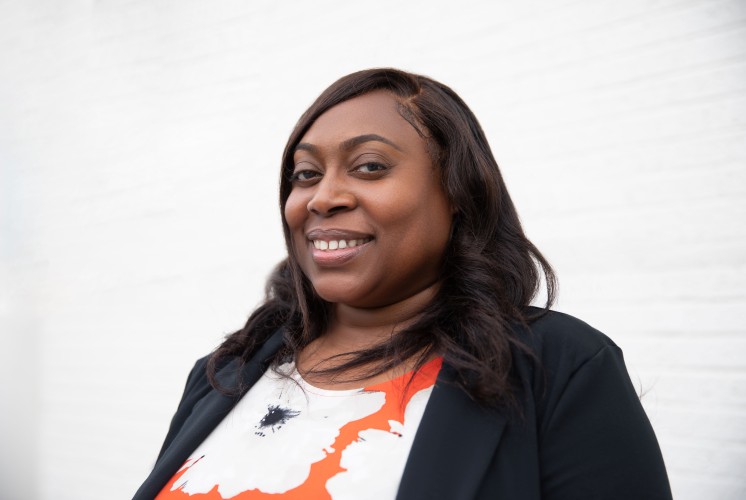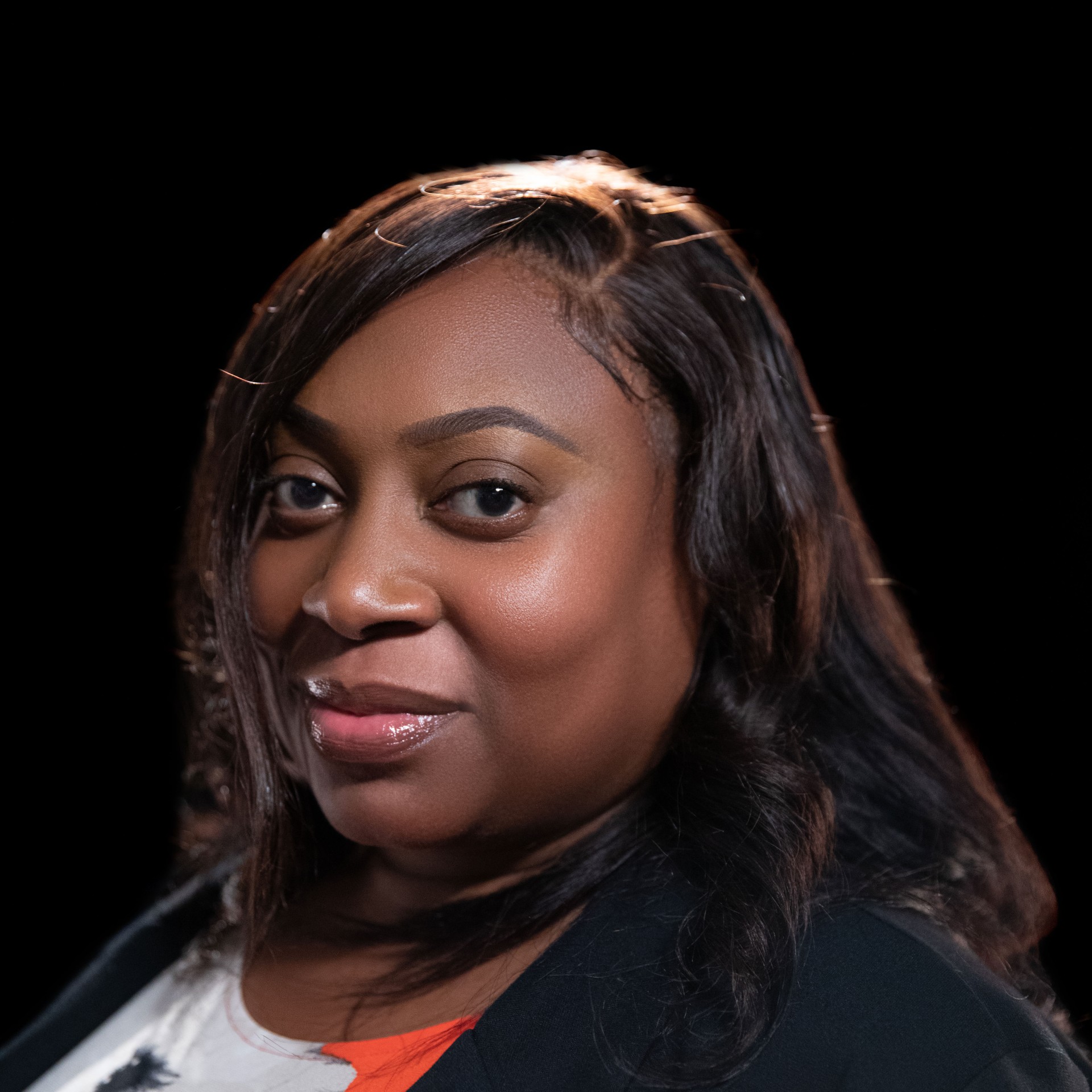DEBT FREE JUSTICE: Can you expound on your observations on mental health supports and how young people process their early childhood traumas?
MARQUETTA: We're not giving them mental help. We're not giving them therapy. We're not even giving them a hug to tell them it's not your fault, all the things that you went through. No, instead, we make it their fault. And in an instant, like Kristen, at the end, when she's a child that is a runaway right now, and there's another young person in a harmful situation or a situation she's not happy with, she goes, "Come with me. I've run away. Run with me." How do we criminalize that? How often when you were a kid, and you did something foolish, and your parents asked you, “Why did you do that?” And you go, “I don't know.” And honestly, we don't know because young people are still learning. They're still growing, and they're still figuring life out. Too often, we want to point the finger at kids when we need to be pointing the fingers at ourselves. Are we creating an environment in a world where young people can be safe in, where they can thrive in? And when they do make poor decisions, instead of getting them help, is incarcerating a child the answer?
Kristen spoke about being dragged out of the car by her neck at 16 years old. How did that help her? A 13-year-old victim, a 16-year-old victim, a 17-year-old victim. How did that help her having that done to her? We have to do better by our young people. They deserve better from us. And when we talk about what's wrong with kids, we need to stop creating policy that harms kids. And we need to start taking a hard look at the decision we're making as adults that impact young people in a negative way.
As kids, we're just trying to get through our childhood. And sometimes we romanticize some of the things that we went through as kids. Our childhood wasn't that bad. I grew up, and I say this with love because I love my parents and I love my father, but my father was a functioning addict. And on the outside, everything looked great. But on the inside, it was awful. It was scary.
When you grow up, you think that you have healed from the things you don't even realize that you are healing. You think that you have grown up and everything was okay. And then it hits you as an adult. “Damn, I really went through some harmful stuff, and I'm still impacted by it today.” And if it takes till you're darn near 30 to 40 years old to look back at your childhood and say, “Dang, I have really, really been harmed by some of the things I went through growing up”. What makes you think a child that's living in that moment can make the decision to say, dang, these things are harmful for me? What makes you think a child can recognize that some of the decisions they're making are poor? It takes for us to grow up as adults and sometimes damn near have a nervous breakdown to realize that this stems from things that I went through as a kid. How can we expect more from them than we expect of ourselves? And what's really scary, some of these same people who are still healing from trauma, they went through it as a child, are our judges, are our DAs, are our prosecutors, are our policymakers that haven't discovered that they're making decisions and policies based on the harm they went through as a kid and now it's impacting our kids. How terrifying is that?
DEBT FREE JUSTICE: Can you speak about the financial stresses that these young adults deal with and how that can show up in their lives?
MARQUETTA: So let's talk about the debt that's accrued when a young person is put into the system. Most of these kids, if they're lucky, are getting an allowance. We all know that debt or these fines and fees, harm marginalized communities the most, which are families that are struggling. And so we're taxing these families who are already barely surviving. And we're stacking fee after fee after fee on these families that can't afford it. You have kids that were getting in trouble when they were 13 or 14 years old, who are now adults. Let's be real. We're hardly the same person we were a week before. We're definitely not the same person six years, five years, seven years down the line. But guess what? That debt doesn't erase because you're 20 years old now and you want to change your life and you want to go to college and you want to get a good job. And when you finally found a good job, now they're garnishing your check for something you did at 14 years old. And again, I go back into that expectation. The expectation that we have of young people, of children, is bigger than the expectations than we have on ourselves as adults. How can you make that make sense? A young child whose brain is still developing, who's still fumbling and stumbling trying to get through life, we're holding them accountable for growing up. And we're charging them for them when they make a mistake. And trust me, when they say there's thousands of kids out there making the same mistakes, they just haven't got caught. There's thousand of kids out there making same mistakes, their parents just can pay for it. One of the biggest epiphanies– we did a fines and fee sessions and there was a little girl in, she was like eight years old, and she was listening to the big kids talk, and she turned around, and she looked at us and she said, "Hold on. You mean to tell me when you're rich, you don't have to go to jail, but when you're poor and you can't pay it, you go to jail? You go to jail for being poor?" Yes. You go to jail for being poor. We don't think about the trauma that we're causing these families.
We don't think about the trauma that we're causing these children by cycling them in and out of prisons and detention centers and jails. And stacking on fees on fees on top of fees because they cannot afford to pay the first fee. How are we helping these families? How are we helping these children? We probably got to overwork parents. And in some instances, these kids don't even have parents that are adultified enough to take care of them. And at the end of the day, when they turn 18, we're surprised, you still have to pay all these fees. How's that for a great start in life? How are we helping these young people become successful adults?
No, we're starting the cycle all the way back over again. So when we have politicians and leaders talking about what's wrong with these children, it's us. It's the policies you create. It's the systems that you create that keeps kids cycling in and out of prison. It's the systems that you create that punish poor people for being poor. We are not doing anything good for these young people by putting fines and fees because they're making mistakes as children. I want you guys to think about when you were a child and all the things you got away with that had the shoe been on the other foot, this could have been you. How would you want somebody to handle your child?

